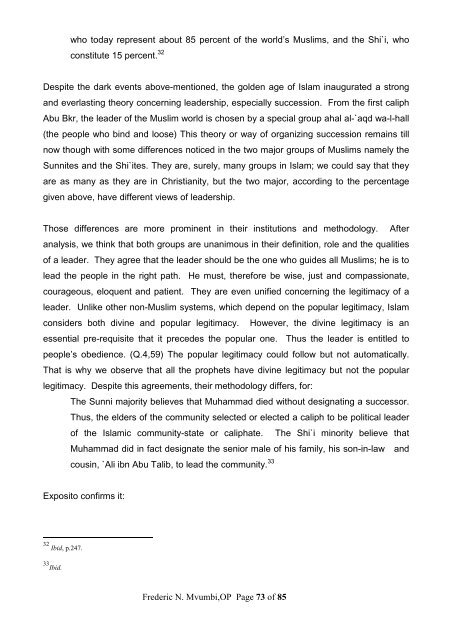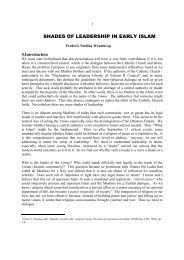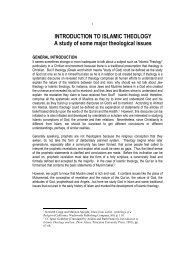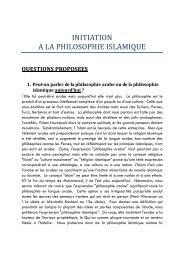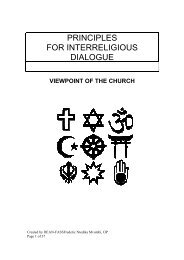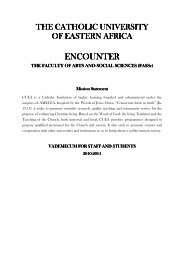ISLAM FOR BEGINNERS BRS 107.pdf - CUEA
ISLAM FOR BEGINNERS BRS 107.pdf - CUEA
ISLAM FOR BEGINNERS BRS 107.pdf - CUEA
You also want an ePaper? Increase the reach of your titles
YUMPU automatically turns print PDFs into web optimized ePapers that Google loves.
who today represent about 85 percent of the world’s Muslims, and the Shi`i, whoconstitute 15 percent. 32Despite the dark events above-mentioned, the golden age of Islam inaugurated a strongand everlasting theory concerning leadership, especially succession. From the first caliphAbu Bkr, the leader of the Muslim world is chosen by a special group ahal al-`aqd wa-l-hall(the people who bind and loose) This theory or way of organizing succession remains tillnow though with some differences noticed in the two major groups of Muslims namely theSunnites and the Shi`ites. They are, surely, many groups in Islam; we could say that theyare as many as they are in Christianity, but the two major, according to the percentagegiven above, have different views of leadership.Those differences are more prominent in their institutions and methodology. Afteranalysis, we think that both groups are unanimous in their definition, role and the qualitiesof a leader. They agree that the leader should be the one who guides all Muslims; he is tolead the people in the right path. He must, therefore be wise, just and compassionate,courageous, eloquent and patient. They are even unified concerning the legitimacy of aleader. Unlike other non-Muslim systems, which depend on the popular legitimacy, Islamconsiders both divine and popular legitimacy. However, the divine legitimacy is anessential pre-requisite that it precedes the popular one. Thus the leader is entitled topeople’s obedience. (Q.4,59) The popular legitimacy could follow but not automatically.That is why we observe that all the prophets have divine legitimacy but not the popularlegitimacy. Despite this agreements, their methodology differs, for:The Sunni majority believes that Muhammad died without designating a successor.Thus, the elders of the community selected or elected a caliph to be political leaderof the Islamic community-state or caliphate. The Shi`i minority believe thatMuhammad did in fact designate the senior male of his family, his son-in-law andcousin, `Ali ibn Abu Talib, to lead the community. 33Exposito confirms it:32 Ibid, p.247.33 Ibid.Frederic N. Mvumbi,OP Page 73 of 85


